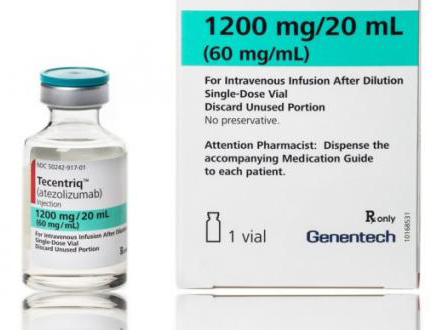Industry watchers pay attention whether the late comer will be applied to risk-sharing system
Roche’s immune checkpoint inhibitor Tecentriq (Atezolizumab) might have a difficult time until it can be subject to health care benefits. Tecentriq is the third approved medication that treats non-small cell lung cancer following Opdivo (Nivolumab) and Keytruda (Pembrolizumab).
Roche Korea is taking steps to help it get covered by healthcare benefits but the process will not be smooth, observers said.

Tecentriq is an expensive drug, and therefore, it is unlikely that Tecentriq will have to go through the generic drug payment process instead of having a risk-sharing agreement with the government.
The government has raised concern that more use of immune checkpoint inhibitors will raise health insurance spending. Reflecting the concerns, the government set a restriction on the use of checkpoint inhibitors by medical institutions when announcing the payment standard for checkpoint inhibitors like Opdivo and other drugs. Under such circumstances, it is difficult for the government to issue a payment contract of Tecentriq without having pharmaceutical firms’ sharing burden. Even Opdivo and Keytruda received insurance benefits under the risk-sharing system.
Risk sharing system applies to new drugs that do not show clear signs of efficacy and effectiveness. So, the pharmaceutical companies divide and share this risk concerning the financial impact to health insurance. Risk sharing system applies to products that have equivalent or similar treatments for rare disease that threatens survival of the patient; anti-cancer medications that do not have a clear treatment method; and others for diseases that have a social and health care impact that requires further assessments for additional conditions. The risk sharing contract between the government and the pharmaceutical companies is three years. If a new similar drug is registered during this period, it is impossible to extend the contract after the contract expires. In addition, there is no increase in insurance benefits during the contract period. Only the first drug in the same series can be applied.
However, it is unclear whether the risk sharing system can be applied to Tecentriq. Opdivo and Keytruda are PD-1 (Programmed cell death protein 1) Immune checkpoint inhibitors. The screening was carried out in a similar period for both treatments. During this time, both the medical staff and the patients strongly demanded to issue the benefits, pushing the government to apply the risk sharing system and set the payment standard. But Tecentriq is a late comer. Should it be approved for the risk sharing system, the drug must be distinctive from the two earlier drugs, while showing its necessity.
The good news is that Tecentriq is different and distinctive because it is an anti-programmed death-ligand 1(anti-PD-L1) immune checkpoint inhibitor, unlike Opdivo and Keytruda. But the bad news is that the drug mechanism is similar to the two. In addition, the key mechanism, the target patient, and the treatment effect do not differ significantly.
Roche Korea is highlighting the fact that Tecentriq is the first anti-PD-L1 Immune checkpoint inhibitor. Executive Director of Roche Korea Choi In-Hwa said, “We have submited the necessary documents related to Tecentriq to the Health Insurnace Review & Assessment Service and I believe they are reviewing and examining them as we speak.”
“Tecentriq is the first anti-PD-L1 Immune checkpoint inhibitor. So regardless of PD-L1, it is an effective medication for patients with non-small cell lung cancer,” she said.
Meanwhile, the government’s payment standard for Keytruda is 2,860,412 won per 100mg and for Opdivo, 1,326,800 won for 100 mg. For a patient with non-small cell lung cancer who takes Immune checkpoint inhibitors for a year, the medical cost amounts to 100 million won. However, such standard considerably lowered the financial burden on a patient for the drug to around 3.5 million won to 4.9 million won per year.

